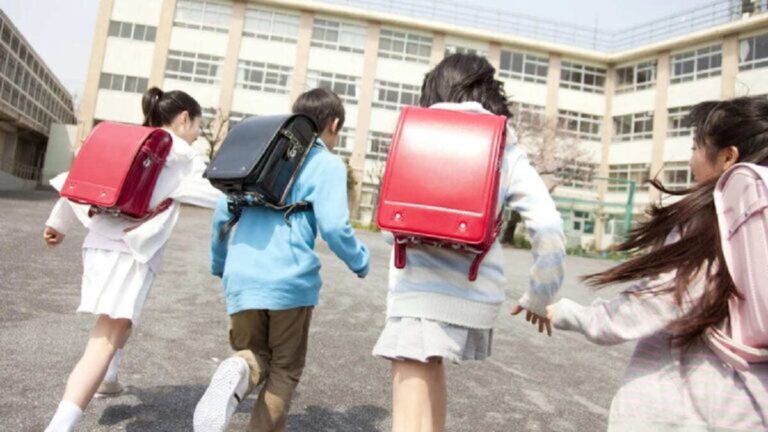Living in the bustling city of Austin, Texas, I’m no stranger to the diverse ways education and parenting intertwine. Recently, I encountered a remarkable story that highlighted the stark contrasts between American and Japanese educational systems. It’s the tale of an American father navigating life in Tokyo, where cultural norms around schooling and parenting offer unique insights into fostering independence and respect in young children.
Navigating a New Education Landscape
Tim Hornyak, an American expatriate residing in Tokyo for the past two decades, offers a captivating glimpse into the Japanese school system. As a content creator and father of two—three and seven years old—Tim has experienced firsthand the nuances and surprises of raising children in a culture that highly values education and communal responsibility. His journey underscores the universal challenges of parenting while adapting to a different cultural framework.
The Independent Commute

One of the most striking aspects of Tim’s experience is his seven-year-old son’s ability to walk to school independently. In many Western cultures, children of that age typically require parental accompaniment, making Tim’s situation quite unique. This level of independence is a testament to the Japanese emphasis on self-reliance and community trust. Tim often finds himself as the only father and foreigner tasked with picking up his son from school, highlighting a notable difference in parental roles and involvement compared to what he’s accustomed to in Austin.
Respect and Social Cohesion
Respect and social harmony are cornerstones of Japanese school culture, something Tim has observed keenly. His daughter’s daily practice of bowing to greet her teachers exemplifies the deep-seated respect ingrained in Japanese children from a young age. Events like Sports Day further reinforce these values, where synchronized dances and team-based competitions promote unity and cooperation. Tim likens the precision and discipline of these activities to military drills, underscoring the structured approach to fostering teamwork and respect among students.
A Clean Sweep
Another fascinating element Tim has noticed is the students’ responsibility for cleaning their classrooms and common areas, a practice known as Osouji Jikan. This routine instills a sense of ownership and respect for their learning environment. Tim’s son has embraced this habit so thoroughly that he insists on serving food at home, demonstrating how these school practices influence behavior beyond the classroom. According to the Japanese Ministry of Education, these cleaning sessions teach children the importance of maintaining a clean and orderly space, fostering both responsibility and communal respect.
Memorization and Uniformity
The Japanese educational system places a strong emphasis on rote learning and memorization from an early age. Tim has observed that this approach, combined with strict school uniform policies, cultivates discipline and uniformity among students. The uniforms, often inspired by historical military and naval attire, reflect a blend of tradition and order, reinforcing the values of consistency and respect for authority within the school environment. This method contrasts with more flexible approaches seen in some Western schools, highlighting the different educational philosophies at play.
Safety in Simplicity
Despite Japan’s low crime rate, Tim notes the surprisingly relaxed security measures at his son’s school. The focus is more on preparedness for natural disasters, such as earthquakes, rather than preventing external threats. This approach mirrors Japan’s overall safe and trusting community ethos, where mutual trust and cooperation are paramount. According to the Japan Meteorological Agency, schools regularly conduct drills and ensure that students are well-prepared for emergencies, emphasizing safety and resilience.
A Father’s Hope
Through his experiences, Tim expresses a deep appreciation for the Japanese educational system. He believes that, despite its rigid structures, the system effectively teaches children valuable life skills such as attentiveness, responsibility, and respect for others. Tim hopes that these lessons will contribute to a more harmonious and conscientious society. His satisfaction with the education his children are receiving underscores the positive impact of cultural practices on child development.
Embracing Diverse Educational Practices

From Austin to Tokyo, Tim Hornyak’s story is a testament to the diverse approaches to education and parenting across cultures. His insights reveal how different environments can shape our children’s growth, fostering qualities that are both universally admired and culturally specific. As parents, understanding these differences can broaden our perspectives and inspire us to adopt practices that best support our children’s well-being and development.
In reflecting on Tim’s journey, it becomes clear that navigating different educational landscapes offers valuable lessons for all parents. Whether it’s encouraging independence, instilling respect, or promoting communal responsibility, the strategies observed in Japan provide a unique blueprint for raising well-rounded and conscientious children.
Final Thoughts
Tim Hornyak’s experience living in Tokyo highlights the profound impact that cultural differences can have on parenting and education. By embracing the strengths of the Japanese school system, such as fostering independence and instilling a deep sense of respect, Tim has found a fulfilling way to raise his children in a foreign land. His story serves as an inspiring example of how adapting to new environments can enrich our parenting practices and contribute to our children’s growth and happiness.
Whether you’re an expatriate parent or simply curious about different educational systems, Tim’s insights offer a valuable perspective on the universal quest to provide the best for our children. Here’s to embracing diversity and learning from one another’s experiences to create a brighter future for our little ones.






